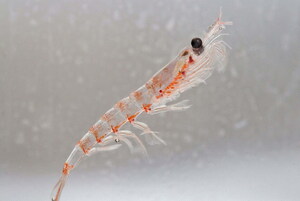
ASOC issues urgent call for global leaders to protect Antarctic waters
HOBART, Australia, Nov. 1, 2019 /PRNewswire/ -- The Antarctic and Southern Ocean Coalition (ASOC) is calling for urgent action from global leaders to protect Antarctic waters. This week, Members of the Commission for the Conservation of Antarctic Marine Living Resources (CCAMLR) were unable to reach consensus on marine protections in the Southern Ocean at their annual meeting in Hobart.
"We urgently need global leadership to reflect the importance of protecting the Southern Ocean surrounding Antarctica. The science is settled. It is only political will preventing the creation of new marine protections in the world's last great wilderness," said Claire Christian, executive director of the Antarctic and Southern Ocean Coalition.
CCAMLR was the first opportunity for action and political leadership following the release of the U.N.'s IPCC Special Report, which warns of the damaging impact climate change is having on the world's oceans and polar regions. Despite this, some countries arrived at the meeting with no mandate to take action on the findings of this report by urgently supporting the designation of Marine Protected Areas (MPAs).
"With a growing loss of biodiversity and threats from climate change, it's disheartening that CCAMLR has failed to protect East Antarctic waters for the eighth consecutive year. Over this time, we have seen multiple breeding failures for Adélie penguin colonies, habitat loss throughout the region, a concentrated krill fishing effort, and the warmest Southern Ocean temperatures ever recorded. Scientists have been clear that MPAs are needed to make a warming and acidifying ocean more resilient," said Andrea Kavanagh, director of The Pew Charitable Trusts' Antarctic and Southern Ocean work.
In 2009, CCAMLR agreed by consensus to establish a network of MPAs throughout the Southern Ocean by 2012. That deadline has long passed, raising questions about the organization's effectiveness and priorities.
"Despite the efforts of many Members, CCAMLR appears to be going backwards. It is not acceptable that fisheries in the Southern Ocean move forward every year while progress is stalled on establishing marine protected areas. Millions of people want to see the Southern Ocean protected and CCAMLR's inability to do this calls its credibility into question," said Frida Bengtsson of Greenpeace's Protect the Oceans campaign.
Globally, biodiversity loss is accelerating to a rate tens or hundreds of times faster than in the past.[1] MPAs are the most effective way to protect ocean ecosystems. They increase the diversity and abundance of species, while mitigating the impacts of climate change.
"The largest and last wilderness on the planet needs our help. Creating sanctuaries will benefit both people and nature. We are calling on all governments to honor commitments to protect nature - there's still time to make a difference." said Chris Johnson, WWF's Antarctic programme lead.
Photos
For high-resolution images and media assets, download our media kit. Please ensure proper credit is given to all photographers (listed in the file name).
Editor's Notes
- The Antarctic and Southern Ocean Coalition (ASOC) represents the interests of the global environmental community. Together, its members represent tens of millions of people globally who want to see the Southern Ocean and the species it supports protected through the designation of marine protected areas and urgent action on climate change.
- The Commission for the Conservation of Antarctic Marine Living Resources (CCAMLR) is an international body that meets annually in Hobart, Tasmania. It is a consensus-based organization made up of 25 member states and the European Union. CCAMLR is responsible for the conservation of living marine resources in the Southern Ocean surrounding Antarctica.
- The proposal to create a marine protected area (MPA) in East Antarctica was first submitted by Australia, France and the European Union in 2010. The Commission has been debating whether to designate it since 2012. The proposal originally included seven representative areas covering 1.8 square kilometers. It has since been reduced to three areas covering just under 1 million square kilometers.
- The proposal for an MPA in the Weddell Sea was first submitted by Germany and the European Union in 2016. At last year's meeting, it failed to reach consensus. The proposal originally included one representative area covering 1.8 million square kilometers. It has since been split into a Western and Eastern portion that will be agreed to in two phases.
- The proposal to create an MPA around the Antarctic Peninsula was first submitted by Chile and Argentina in 2018. It includes a representative area covering 670,000 square kilometers of which 63% is fully protected as a general protection zone.
SOURCE Antarctic and Southern Ocean Coalition







Share this article